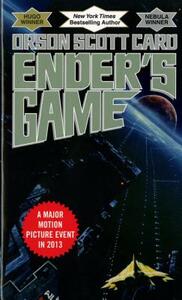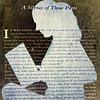You need to sign in or sign up before continuing.
Take a photo of a barcode or cover
adventurous
emotional
lighthearted
medium-paced
Plot or Character Driven:
A mix
Strong character development:
Yes
Loveable characters:
Yes
Diverse cast of characters:
N/A
Flaws of characters a main focus:
Yes
As an esl it is quite easy read too, which is a plus for newer reader like me. I cant wrap my head for the fight scene sadly
The first sci-fy novel I've read. Thoroughly engaging and written in a way that I could imagine myself being there...but not so much detail that it gets tedious. I read this out loud in the car on a long vacation and my husband and (then 10 year old son) were also captivated.
adventurous
dark
emotional
fast-paced
Plot or Character Driven:
A mix
Strong character development:
Yes
Loveable characters:
Yes
Diverse cast of characters:
Complicated
Flaws of characters a main focus:
No
This book is everything the childhood me fantasised about space fiction.
Ender Wiggins is basically a powerful protagonist who never loses a fight. Despite the predictability this causes, Card does a great job of keeping him and the whole story interesting by focusing on the psychological suffering of Ender. The Wiggins siblings are an interesting set of characters. I wish there was more depth to Peter and Valentine's story. The side cast is well-rounded, too. Ender and Graff will stay with me for a long time.
Card sets up the world neatly without much exposition. Because of this, it took me a while to get into the book, but once I did, I could not put it down and was absolutely intrigued till the end. This is one of the rare books that I enjoyed the battle scenes in.
I liked how Card kept the writing straight, simple and effortless. The Plot may be the only part of the book that I would not rate as high as the others. Many parts of the story felt predictable, but I'm willing to put them down to the book being out for more than 40 years. It is certainly possible that I've come across the plot points in various forms of media that have come out since then.
The story felt well complete with everything neatly tied up. So, not sure what the sequels will contain, but I am certainly picking them up soon. I wish one of the sequels tells the whole story from a bugger's perspective. That should be interesting since the buggers do not have a concept of language.
Ender Wiggins is basically a powerful protagonist who never loses a fight. Despite the predictability this causes, Card does a great job of keeping him and the whole story interesting by focusing on the psychological suffering of Ender. The Wiggins siblings are an interesting set of characters. I wish there was more depth to Peter and Valentine's story. The side cast is well-rounded, too. Ender and Graff will stay with me for a long time.
Card sets up the world neatly without much exposition. Because of this, it took me a while to get into the book, but once I did, I could not put it down and was absolutely intrigued till the end. This is one of the rare books that I enjoyed the battle scenes in.
I liked how Card kept the writing straight, simple and effortless. The Plot may be the only part of the book that I would not rate as high as the others. Many parts of the story felt predictable, but I'm willing to put them down to the book being out for more than 40 years. It is certainly possible that I've come across the plot points in various forms of media that have come out since then.
The story felt well complete with everything neatly tied up. So, not sure what the sequels will contain, but I am certainly picking them up soon. I wish one of the sequels tells the whole story from a bugger's perspective. That should be interesting since the buggers do not have a concept of language.
Wow. One of those books that I couldn't put down for some reason. Not sure why - the writing was okay, but not brilliant. The characters... well, it seemed that we never really got to know them, not even Ender, though the book was pretty much centred around him. Though maybe this was the point? Everyone, especially Ender, seemed rather disconnected, especially given his isolation. But the story... well, I sort of have a thing about children in horrible situations, especially when they're forced to fight or kill each other, or others, because it's really just so horrific and unthinkable. And perhaps it reflects more on human nature, the actions of children who haven't had time to train themselves into fitting into the societal mould of acceptable.
I had first read this book in 2011/12 when I was in my early 20s and I remember being spellbound. I was in awe and heartbroken for Ender. Who ultimates wanted love and acceptance as many of us do, trying to survive the circumstances we’re born into.
Rereading in my 30s, with the world in the state that it is. With more life experiences and also knowing the ending. I have more anger to the adults in the story. The excuses people make, the rationale to excuse weak causes, manipulation of the ignorant. And to quote System of a Down, “why don’t presidents fight the war, why do they always send the poor?”
This is still an amazing work of sci-fi with political undertones. Crazy to think this was written in 1985.
Rereading in my 30s, with the world in the state that it is. With more life experiences and also knowing the ending. I have more anger to the adults in the story. The excuses people make, the rationale to excuse weak causes, manipulation of the ignorant. And to quote System of a Down, “why don’t presidents fight the war, why do they always send the poor?”
This is still an amazing work of sci-fi with political undertones. Crazy to think this was written in 1985.
Initial Impressions:
Ender’s Game is often praised as a cornerstone of science fiction, and it’s easy to see why. This is a story that looks at leadership, war, manipulation, and the ethics of survival through the eyes of a child prodigy — Ender Wiggin. What begins as a tale about training in a futuristic military school evolves into something much more complicated: a reflection on humanity, morality, and what makes someone a “monster.”
It’s not a book about children being children. It’s about children being used as tools. About systems breaking people down to build weapons out of them.
What Worked for Me:
Ender as a Protagonist:
Ender is complex. He’s a genius, but he’s still a child grappling with isolation, expectation, and manipulation. Watching his inner struggle unfold is one of the novel’s greatest strengths.- Themes of War & Morality:
The book doesn’t shy away from asking difficult questions:- What is the cost of victory?
- How do we define our enemies?
- Can violence ever be justified if you don’t even realize you’re committing it?
These themes give the story surprising weight for a book often marketed as a YA sci-fi classic.
- What is the cost of victory?
- The Zero-Gravity Battles:
The training games in space are inventive, intense, and genuinely fun to read. They give the story momentum while also deepening the stakes. - Insight into Manipulation:
The manipulation by adults — using children for their own strategic ends — is a chilling aspect of the story that still feels relevant today.
Things That Didn’t Land as Well:
Outdated Elements: Written in 1985, some parts (such as technology expectations and gender roles) feel dated, though Card was ahead of his time in certain ways, like including Muslim and female characters at all.- Female Characters: Women play little active role in the narrative, sidelined despite hints they could have been more.
- Philosophy vs. Emotion: While it tackles deep philosophical ideas, sometimes that comes at the expense of fully fleshing out supporting characters emotionally.
Final Thoughts:
Ender’s Game is not a lighthearted read about childhood triumph. It’s a novel about survival, manipulation, and the human capacity for both cruelty and compassion. It’s also about loneliness and leadership, and how intelligence doesn’t shield someone from being broken.
If you enjoy science fiction that combines action with philosophical reflection, this is absolutely worth your time. It challenges its reader to consider what makes someone a hero, a villain, or a victim — and whether those roles can even exist separately.
Recommended for:
Readers who love psychological complexity in their sci-fi.- Fans of military strategy or stories that critique systems of power.
Anyone who was ever an intelligent, lonely kid feeling misunderstood by the world.
That last chapter was really something special, I feel like printing it and sticking it to my wall
adventurous
challenging
dark
tense
medium-paced
Enders Game is the book, that made me start to read SciFi.
I've always liked watching Star Trek /Star Wars and the like, but I would never have considered reading it.
Then this book found it's way into my hands. I was hooked from the first page on. It is a really fast paced pagturner, that never gets boring. I really liked Ender, and once I started reading, I didn't want to part ways with him again. The second I closed the book I went online and bought the audio books of the three sequels. And I tore through them in just one week.
I love how Ender changes in the book too. He starts of as this little kid, but he grows to be so much more. Really a fantastic series!
I've always liked watching Star Trek /Star Wars and the like, but I would never have considered reading it.
Then this book found it's way into my hands. I was hooked from the first page on. It is a really fast paced pagturner, that never gets boring. I really liked Ender, and once I started reading, I didn't want to part ways with him again. The second I closed the book I went online and bought the audio books of the three sequels. And I tore through them in just one week.
I love how Ender changes in the book too. He starts of as this little kid, but he grows to be so much more. Really a fantastic series!
adventurous
challenging
dark
fast-paced
Plot or Character Driven:
Character
Strong character development:
Complicated
Loveable characters:
No
Diverse cast of characters:
Complicated
Flaws of characters a main focus:
No





